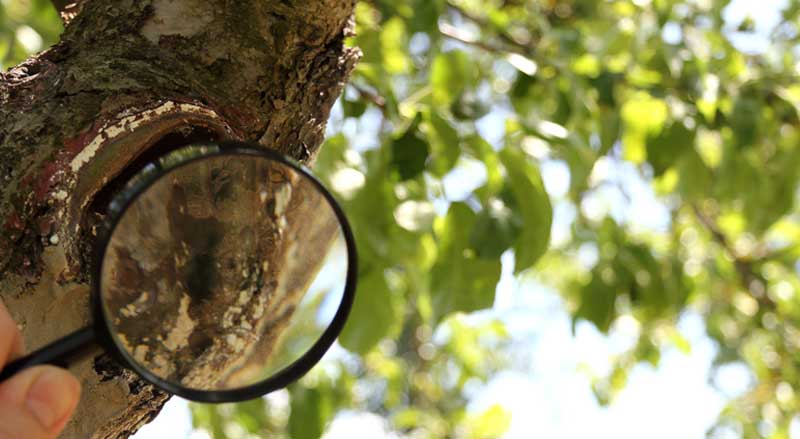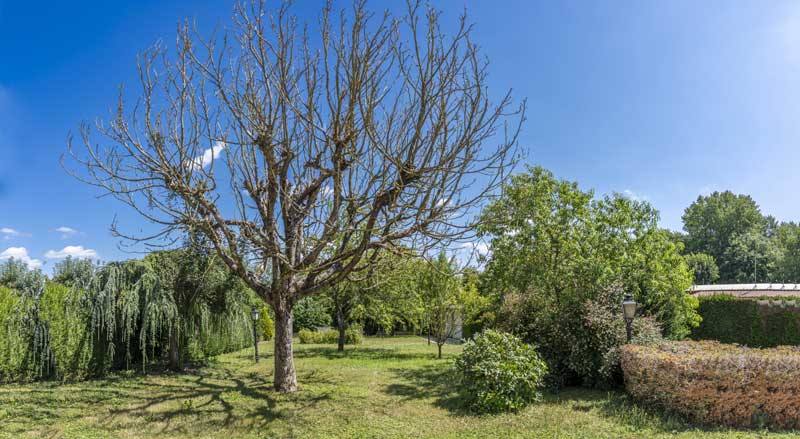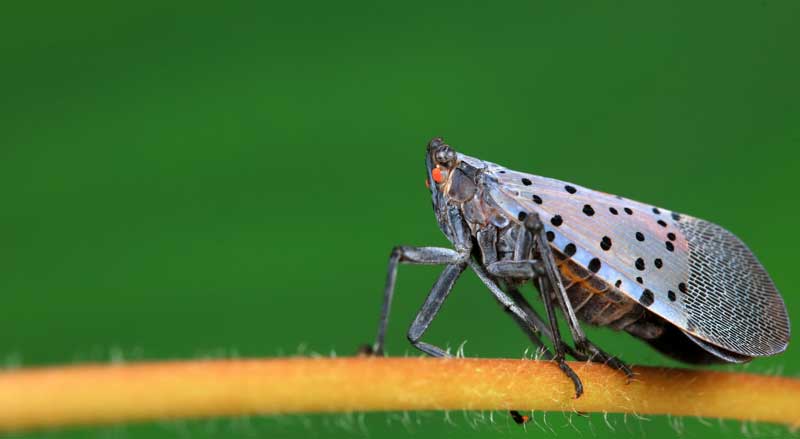Most homeowners appreciate the shade, beauty, and character that mature trees bring to their property. But when a tree shows signs of distress — leaning, cracking, or losing vitality — it’s natural to wonder whether it poses a safety risk. That’s where tree risk assessment comes in.
Tree risk assessment is both a science and a professional skill. It involves evaluating a tree’s health and structural integrity to determine how likely it is to fail — and what could happen if it does. Certified arborists, like those at Trees Unlimited NJ, use standardized methods and advanced tools to make informed recommendations that balance safety, preservation, and property value.
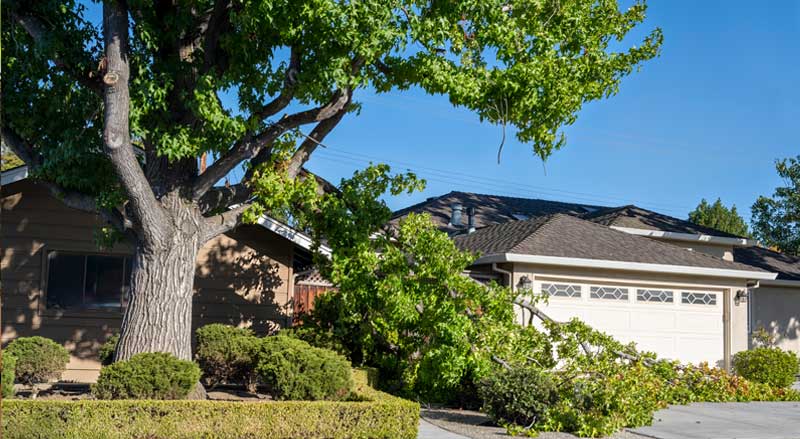
The Goal of Tree Risk Assessment
The purpose of a tree risk assessment is simple: identify trees that may fail and cause damage or injury before problems occur. In Northern New Jersey, this is especially important due to:
- Frequent storms and high winds
- Saturated or compacted soils
- Aging trees in developed neighborhoods
- Construction or grading near root zones
Professional assessment helps determine whether a tree can be preserved through pruning or support systems, or whether removal is the safest course of action.
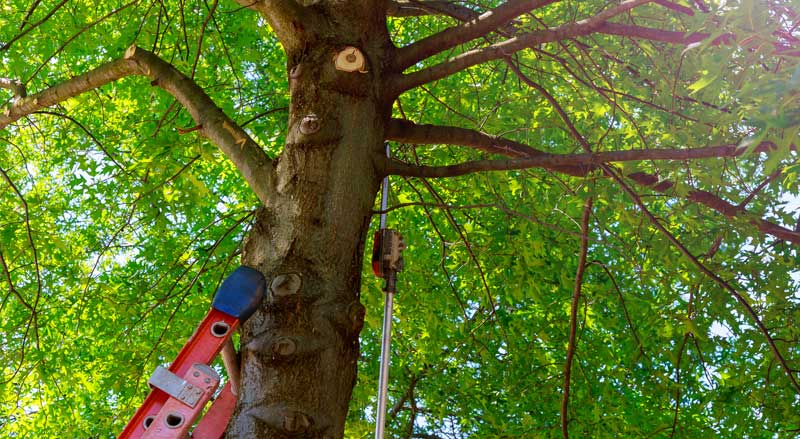
The Science Simplified: How Arborists Evaluate Tree Risk
Tree risk assessment combines visual observation with scientific principles. The process focuses on three key factors:
- Likelihood of Failure – How probable it is that a part of the tree (such as a branch, trunk, or root system) might break or uproot.
- Likelihood of Impact – Whether a structure, person, or vehicle is within the tree’s potential “impact zone.”
- Consequences of Failure – How severe the damage would be if the failure occurred.
When these factors are combined, the arborist can classify the tree’s risk as low, moderate, high, or extreme — and recommend the appropriate response.
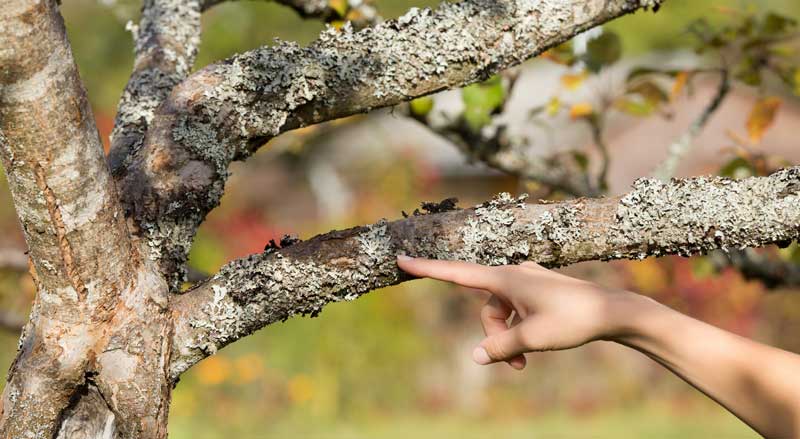
What Arborists Look For
During an inspection, arborists look for visible signs of weakness or stress, such as:
- Cracks or splits in the trunk or major limbs
- Hollow or decayed sections
- Weak branch unions or co-dominant stems
- Leaning trees with soil heaving near the roots
- Dead or hanging branches
- Evidence of insect damage or fungal decay
The arborist also considers site conditions: soil type, drainage, wind exposure, and the proximity of structures or utilities.
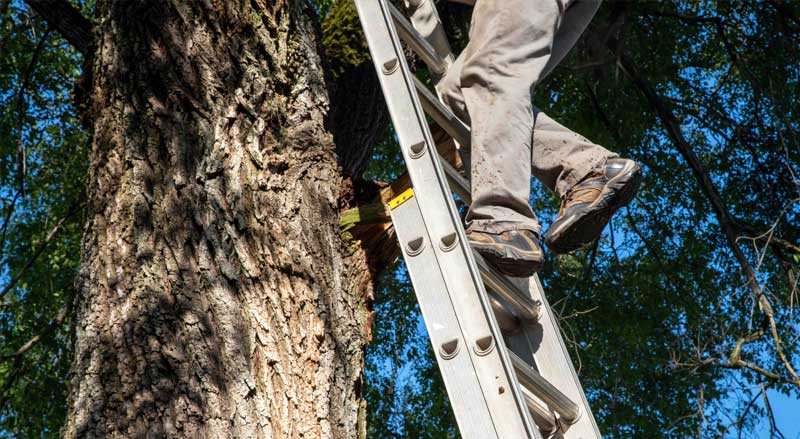
Levels of Tree Risk Assessment
Depending on the situation, arborists perform different levels of evaluation:
- Level 1: Limited Visual Assessment – A quick visual check, often performed after storms or on multiple trees at once.
- Level 2: Basic Visual Assessment – A thorough ground-based inspection that examines the tree’s structure, roots, and canopy using simple tools.
- Level 3: Advanced Assessment – Used for high-value or questionable trees, employing specialized instruments to measure internal decay or structural soundness.
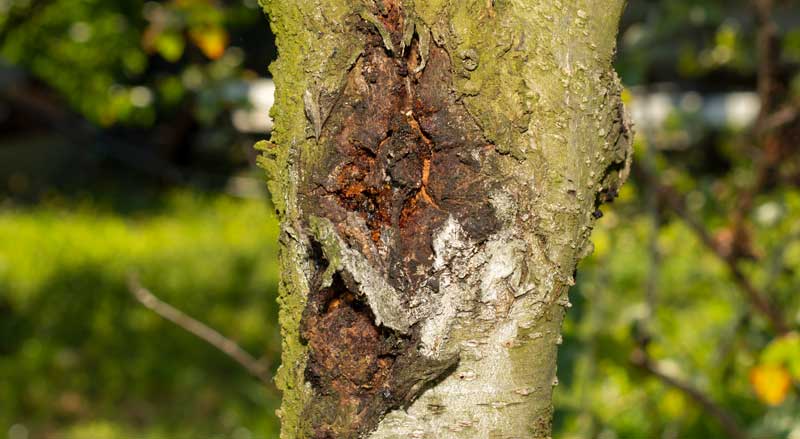
When to Schedule a Tree Risk Assessment
You don’t have to wait for a problem to appear. It’s smart to schedule an assessment if:
- You notice leaning, cracks, or cavities in the trunk
- Leaves are thinning, or canopy dieback is visible
- Mushrooms or fungal growth appear near the base
- Roots have been disturbed by construction or new landscaping
- Major storms or high winds recently affected your area
- A large tree is positioned near a home, driveway, or outdoor living area
An annual inspection is ideal for properties with mature trees or dense plantings. Think of it as preventive medicine for your landscape.

How Trees Unlimited NJ Approaches Tree Risk Assessment
At Trees Unlimited NJ, our certified arborists apply both science and decades of hands-on expertise to evaluate each tree on your property. Whether you’re a homeowner, business owner, or serve on an HOA board, we are available to assess your tree care needs professionally.
Our process typically includes:
- Initial Consultation & Site Walk – We discuss your concerns and identify any trees that may pose a potential hazard.
- Comprehensive Evaluation – Using ISA Tree Risk Assessment standards, we inspect the trunk, crown, and root system for visible and hidden issues.
- Advanced Testing (if needed) – If decay or internal defects are suspected, we may use resistograph or sonic tools for confirmation.
- Risk Rating & Recommendations – We clearly explain the findings, classify the risk level, and outline mitigation options such as pruning, cabling, or removal.
- Follow-Up Monitoring – Some trees need ongoing observation; we provide re-inspection schedules to keep you informed.
This process gives homeowners confidence in their trees—and ensures that any decisions are made with both safety and conservation in mind.
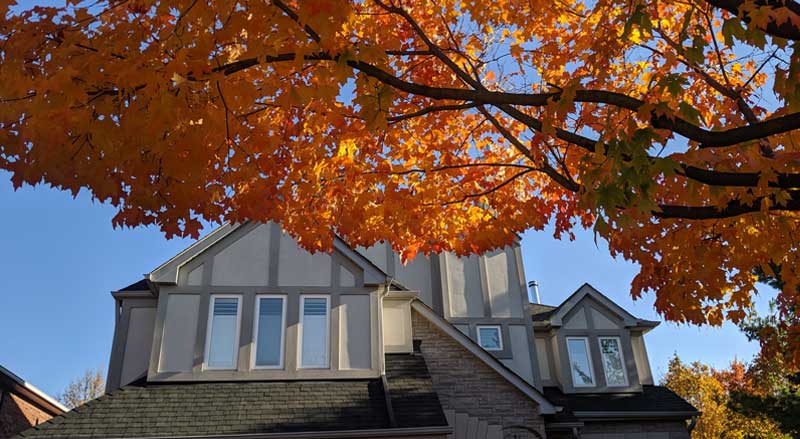
Protecting What Matters Most
Aging trees are a vital part of the New Jersey landscape, offering shade, beauty, and environmental benefits. But when their health declines, timely professional evaluation is the key to safety.
The science behind tree risk assessment helps homeowners make informed choices—reducing liability, preserving the landscape, and protecting families and property from harm.
If you suspect one of your trees may be struggling or want a proactive health check, contact Trees Unlimited NJ. Our team will assess your trees with precision and care, so you can enjoy your property’s natural beauty—safely and confidently.
Proactive Care for Long-Term Safety
Tree risk assessment is not a one-time event. Trees are living organisms that respond to weather, soil, and human activity. Regular monitoring — especially after major storms — helps identify changes early and reduce long-term risk.
A periodic inspection program can help:
- Extend the lifespan of mature trees
- Prevent costly property damage
- Maintain the safety and beauty of your landscape
Partner with Trees Unlimited NJ
At Trees Unlimited NJ, our ISA-certified arborists combine decades of experience with advanced diagnostic tools to evaluate tree stability and health. Whether you’re concerned about a single tree near your home or managing a large property, our assessments provide the knowledge you need to make informed, confident decisions.
Protect your property, preserve your trees, and ensure safety for years to come.
Schedule a professional tree risk assessment today at TreesUnlimitedNJ.com.

